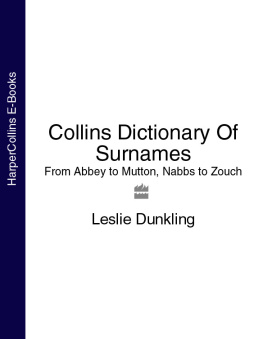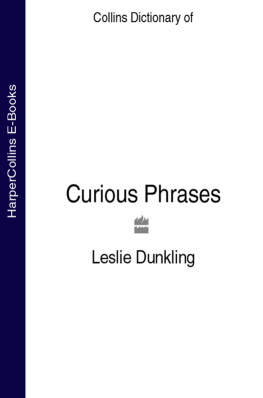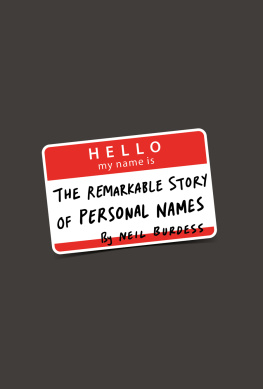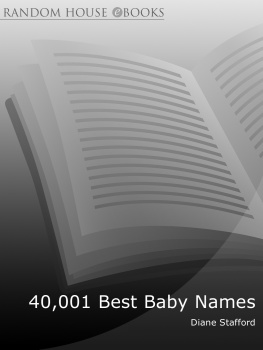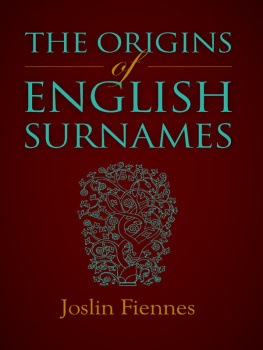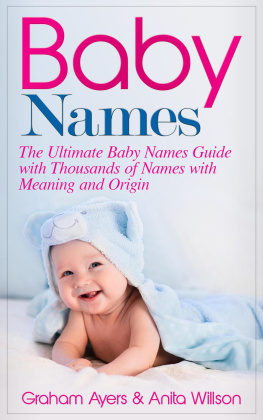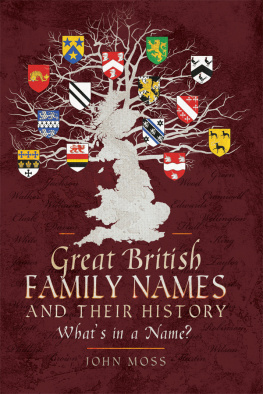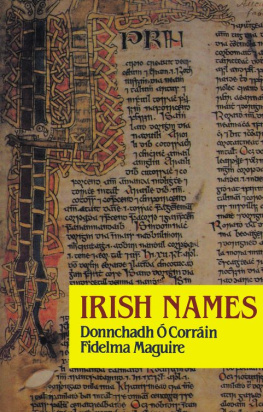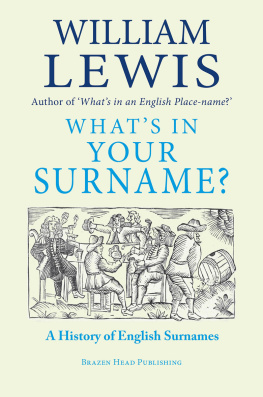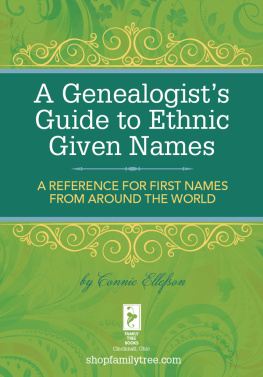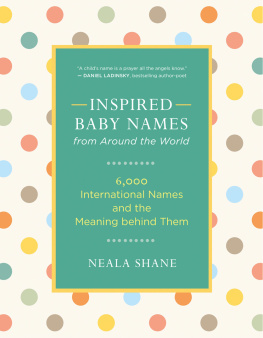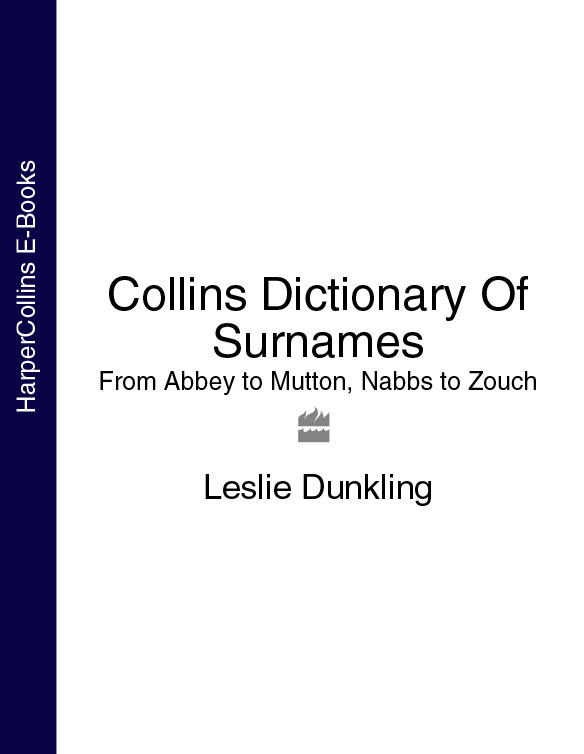Dictionaries are usually consulted very briefly for what they have to say about a single name or word. Many would apply to them the old joke about telephone directories they have lots of characters but not much of a story. I think they fail to do their job if that is the case. A dictionary should be a collection of stories, each one briefly told and interesting in its own right. Those stories should be written in plain English, not dressed in academic jargon. The dictionary should, as a result, be a book in which you can happily browse, never being quite sure what you will discover on the next page.
As it happens, Collins have established a tradition of reader-friendliness in their dictionaries which has proved to be very successful. In this work I have gone very deliberately down that friendly path, to the extent of providing from time to time an anecdote, verse or quotation to accompany the linguistic facts. Those facts, of course, are often entertaining in themselves; the anecdotal material is meant to be an icing on the cake.
Surnames are not just words; they are intimately connected with people and with human behaviour in all its variety. Taken as a whole, our surnames show not only where our ancestors lived and how they earned their living; they also record the out-spoken comments our fore-fathers made on their neighbours physical or mental peculiarities. In our surnames we find a record of life in the Middle Ages and are allowed a glimpse into the medieval mind. Our surnames really do bring the past to life.
Since it is impossible in a book of this size to deal with the huge number of individual surnames that now exist, I have tried to provide as much practical help as possible for those who are trying to trace the origin of an uncommon name. Inevitably that will mean delving into family history, but that is always a rewarding occupation. Researching your own surname leads you back to your ancestors. They are waiting there for you to find them.
We take it for granted today that everyone has a surname, but that was not always the case. Three questions we can usefully ask, therefore, are when, why and how surnames came into being. The answers to the first two questions are closely connected, so we can treat them together.
BLENDED NAMES
Our remote ancestors had a single name, referred to throughout this dictionary as a personal name. The Anglo-Saxons and their Germanic cousins usually formed such names by using words that had become conventional name components. Those who make a particular study of names (onomatologists) refer to these name components as elements, and they are described as such in the entries which follow. Germanic name elements often referred to abstract qualities such as fame or strength. Some other favourite themes were words meaning riches, battle, brave, elf, beloved, rule, raven, victory, power, friend, wolf, protection, bright, old, peace, gift. In forming a name for a child, one of the elements from the fathers name might be combined with one from the mothers name to create a new name. It was not necessary for the two parts of the name to complement each other in meaning. Wulfram, for instance, was not meant to have an overall sense, linking wolf and raven. That is why it has been necessary in this dictionary to use a rather long-winded formula and say something like Wolfram (one of the modern forms of the surname), descendant of someone who bore the Germanic personal name Wulfram, composed of elements meaning wolf and raven.
As it happens, this method of creating a name from parts of other names continues in modern Britain to some extent, though it is normally restricted to minor naming systems. A typical example would be a William and Mary using parts of their names to create Wilry, say, or Wilmar as a house-name or a name for their boat. Modern formations of this type are usually known as blends.
NAME MAGIC
The Anglo-Saxons do not seem to have duplicated personal names within the same community, nor did they re-use the names of distinguished ancestors. That situation changed when the Danes and Norwegians settled in Britain. They brought with them their own names, which were often similar to those of the Anglo-Saxons, but more importantly, they brought with them their own naming philosophy. As Sir Frank Stenton once expressed it, the Scandinavians believed that the soul of an individual was represented or symbolised by his name, and that the bestowal of a name was a means of calling up the spirit of the man who had borne it into the child to whom it was given. Those words could, of course, be used of many modern parents. They name a child after an admired person in the hope that the qualities of that person will somehow be passed on to the new name-bearer.
This belief in name-magic meant that the Scandinavians deliberately re-used the names of famous chiefs or family friends when naming their children. By doing so, they had taken a step towards the modern situation where any number of children born in a particular year are likely to receive the same first name. There is nothing wrong with that system, but it makes a second name essential if an individual Daniel or Laura, say, needs to be identified more precisely.
BY-NAMES
The Normans shared the same ideas as the Scandinavians about re-using names. When they came to England as conquerors in the 11th century their ideas about naming, as well as the names they used, soon began to be adopted by the natives. The Normans had already begun to use secondary names for purposes of legal identification, especially to establish ownership of land. This useful practice became more common, and Englishmen, especially those of high social class and status, followed suit. Over the next two centuries, what had begun as an aristocratic necessity filtered down through the social classes. By the end of the 14th century, families at all levels of society had what we now call a surname. Thesaur- of surname, incidentally, is from Latin super extra, though some early writers on the subject insisted that surnames were really sirenames.
An important point about surnames is that they are passed on from one generation to the next. That was not necessarily the case when secondary names were first used. There was a long period during which someones additional name was a by-name, applying only to the person who bore it. John Baker at that time was a baker, but his son might be Robert Johnson. It was only when a man could be called Baker, even though he practised some other trade, or Johnson when his fathers name was William, that Baker and Johnson could truly be called surnames.
VARIANT SPELLINGS
There was, then, a fairly lengthy surname-formation period during which surnames slowly evolved, and for purely practical reasons. But the surnames most people bear today have been in existence for some six hundred years. During that time the words that were used to form them in the first place have often changed their meanings, and most names have changed their spelling. For centuries, after all, the names were being written down by semi-literate clerks using their own ideas about how to represent the sound they were hearing. The name-bearers were usually unable to guide them or correct them since most people, at all levels of society, were illiterate. As a result, in their passage through the centuries, individual names may have taken on a wide variety of forms. The lists of variants which accompany many entries in this dictionary make that point.
Not everyone bears a surname that came into existence by the end of the Middle Ages. Many families have understandably adopted a new surname or adapted an existing one, seeing no reason why they should perpetuate the embarrassing nickname of an ancestor. It is easy to see why the names listed in Appendix 1, for instance, have become obsolete. Foundlings were given surnames by parish authorities, often in a whimsical manner, and may only date from the 19th century. Jewish families had their own naming traditions, but were often forced to adopt surnames. It is only by tracing back a familys history that one can be reasonably sure that the surname a family now bears was that of a medieval ancestor.

